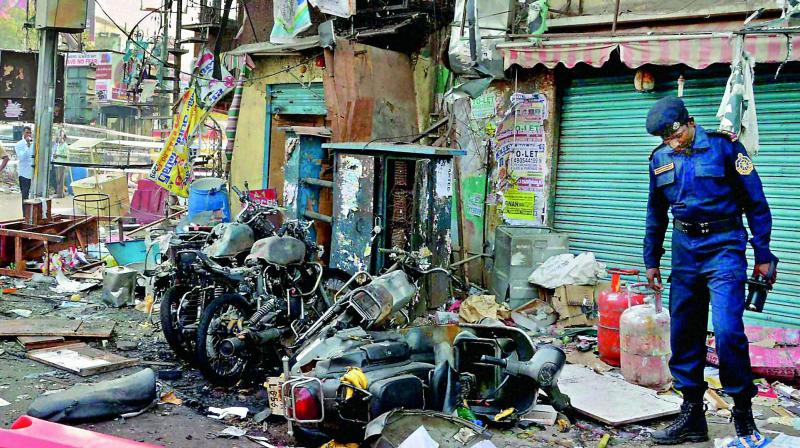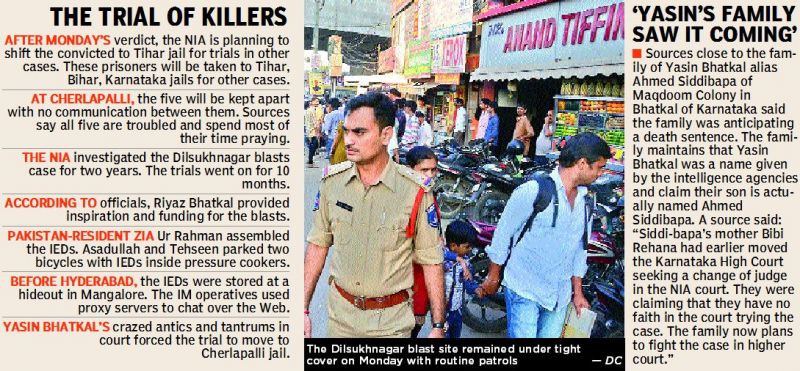Hyderabad blasts case verdict: Why death sentence kept justice alive
Defence counsel said a bomb blast was not the rarest of rare cases that deserved death penalty.

Hyderabad: NIA special public prosecutor, K. Surender explained on Monday that four of the provisions under which the five men were convicted in the Dilsukhnagar blast case has the death penalty as punishment.
“Murder, Explosive Substances Act, waging war against the country and sections of the Unlawful Activities Prevention Act attract the death penalty. Under other provisions, such as attempt to murder and destruction of public property, the five received varying sentences.”
Explaining why the court called it the rarest of rare cases, Mr Surender said: “The court has found that the accused planned, implemented and executed, going from one place to another, resorting to bombing in a cruel manner. The court also took into account that the accused had no remorse nor did they show any signs of repentance. It is pre-planned murder of people. The sentence is a kind of assurance to society by the judiciary."
In the opinion of senior advocate V Surender Rao: “The rarest of rare cases are decided by judicial conscience. The public conscience may also be considered. Usually, when murders take place with a motive of revenge or a dispute, it may be regarded as a normal case. But here, they have killed innocent people and they waged war against the nation."
The evidence
Circumstantial evidence came in the form of statements by those who sold bicycles and the pressure cookers in Hyderabad to the five convicted men, and witnesses. However, it was the evidence of an eye-witness who saw the accused Tahseen Akthar parking the bicycle with a box concealing the bomb that was the most telling.
The witness, who was picking up his wife from a bus-stop, saw Akthar parking his bicycle with a box on it at Dilsukhnagar. The witness thought Akhtar was an idli seller. As soon as he had picked up his wife and turned into a bylane, the bomb went off. He bravely returned to the spot and gave an interview to a TV channel and testified to the same in court.
The investigators
The team was made of: Chief Investigating Officer Sunil Immanuel who is now the Meerut DIG; Investigating officer Md Thajuddin Ahmed who is now the Falaknuma ACP; DSP Venkatadri supervised by IG Ravi Shankar Ayyannar, who is now head of AP Drug Control Administration.
A senior official said: “The success of the case depended on connecting the accused to the crime scene. The remnants from the blast collected from the scene of the offence led to those who sold pressure cookers and bicycles. Even the remnants collected from the Abdullahpurmet test blast area led to key witnesses.”
The stitch
“The peculiarity of a stich in one of the tyres of the bicycle used to transport the bomb led us to the seller of the cycle who identified the suspects and testified. The witnesses may lie but the circumstances, articles sold and purchased will not lie,” the official said.


